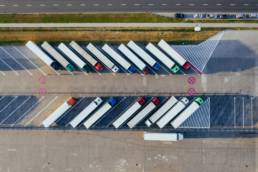Over the past few years, companies around the world have faced a number of hardships related to logistics. From supply chain disruptions to port congestion, these challenges have had a significant impact on businesses of all sizes. In this article, we’ll explore some of the key hardships that companies have faced related to logistics from 2019-2023.
One of the biggest challenges that companies have faced in recent years is supply chain disruptions. The COVID-19 pandemic, which began in 2019, caused significant disruptions to supply chains around the world. Lockdowns, travel restrictions, and factory shutdowns all contributed to delays and shortages of critical goods and materials.
Another challenge that companies have faced related to logistics is the shortage of truck drivers. In many parts of the world, including the United States and Europe, there is a growing shortage of qualified truck drivers. This has led to increased competition for drivers and higher shipping costs, which can have a significant impact on the bottom line for companies that rely on logistics to move their products.
Port congestion is another major challenge that companies have faced in recent years. As global trade volumes continue to increase, many ports around the world have become overwhelmed with cargo. This has led to delays, increased costs, and reduced efficiency for companies that rely on these ports to move their products.
The rise of e-commerce has also presented challenges for companies related to logistics. With more and more consumers shopping online, companies have had to adapt their logistics strategies to meet the demands of a more complex and fragmented supply chain. This includes developing new last-mile delivery options and implementing new technologies to improve visibility and control over the supply chain.
Finally, climate change has also presented significant challenges for companies related to logistics. Extreme weather events, such as hurricanes and floods, can cause significant disruptions to supply chains and lead to increased costs and delays. Companies are now taking steps to mitigate these risks by investing in more resilient supply chains and developing new technologies to reduce the environmental impact of logistics operations.
In conclusion, the past few years have been marked by significant challenges for companies related to logistics. From supply chain disruptions to port congestion, the logistics industry has faced a number of significant challenges. However, companies that are able to adapt and innovate in response to these challenges will be well-positioned to succeed in the years ahead. By investing in new technologies, developing more resilient supply chains, and implementing new logistics strategies, companies can overcome the challenges of logistics and thrive in an increasingly competitive business environment.



